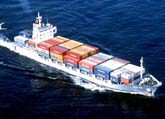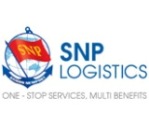 |
European exporters face having their shipments to Asia disrupted for up to six weeks after a raft of container lines stopped accepting cargo bookings this week in an effort to clear a backlog of freight at European ports.
Maersk, the world's largest container line, together with French rival CMA CGM, confirmed they had frozen cargo bookings on eastbound services from Northern Europe to Asia, reported the South China Morning Post.
Other carriers, including Tung-family-controlled Orient Overseas Container Line, Cosco Container Lines (Coscon) and China Shipping Container Lines, did not respond to requests for comment.
South Korea's Hanjin Shipping said it was still taking cargo reservations but it could not comment about other members of its Green Alliance, which includes Coscon and Taiwan's Yang Ming Marine Transport.
Shipping executives said the problem had been caused by strong export demand from Europe to Asia since the beginning of this year, coupled with cutbacks in shipping capacity as carriers cut or merged services to save costs.
A senior executive from one international logistics company said: "I can confirm that some carriers have put a halt to eastbound bookings due to a backlog of cargo as a result of skipped sailings and capacity withdrawal.
"The situation is made worse by carriers preferring to get their stacks of empty containers back to Asia to load them up with high-revenue freight, following rate increases."
Current freight rates from Asia to Europe are about US$1,500 per TEU but rates from Europe to Asia are much lower, reflecting the lower value of the cargo, mainly scrap material, exported to Asia.
Sunny Ho Lap-kee, executive director of the Hong Kong Shippers' Council, said even if carriers rejected bookings, they would not publicly announce the move. Instead, he said, cargo owners would move to other shipping lines if space was available.
David Skov, regional head of Maersk Line, said import volumes on all trades in the first two months of this year had grown by up to 40 per cent, albeit from very low levels.
By comparison, shipping lines had cut capacity by 10 per cent to 15 per cent on Europe-Asia services since the beginning of this year by withdrawing services, while Maersk planned to cut capacity by another nine per cent after merging services with CMA CGM next week.
Pointing to the growth in cargo volumes, a senior shipping executive said: "This week has been really good. China has been importing more and more". But he added that freight rates on Europe-to-Asia services were still at low levels even though several container lines had increased freight rates by $100 to $200 per TEU in the past few weeks. He forecast there would be further reduction in capacity from April 1 as carriers merged more services.
Maersk told customers last Thursday it was not taking any more bookings effective immediately "to ensure we prioritise and deliver on the bookings we have already accepted".
Skov said the line would take a series of measures, including redeploying ships and making additional port calls, to clear the cargo backlog. "We aim to clear it as fast as possible. In the worst case, it could take until the end of next month, but hopefully it will be much earlier."
Ho and other shipping sources said the cuts in capacity were made worse by the heavier cargoes carried from Europe to Asia. They said typical freight involved waste paper, scrap steel, marble and chemicals. They said ships were only taking 50 per cent to 70 per cent of their capacity before reaching their weight limit.
Cargonews Asia
|













